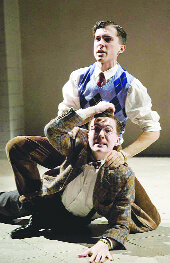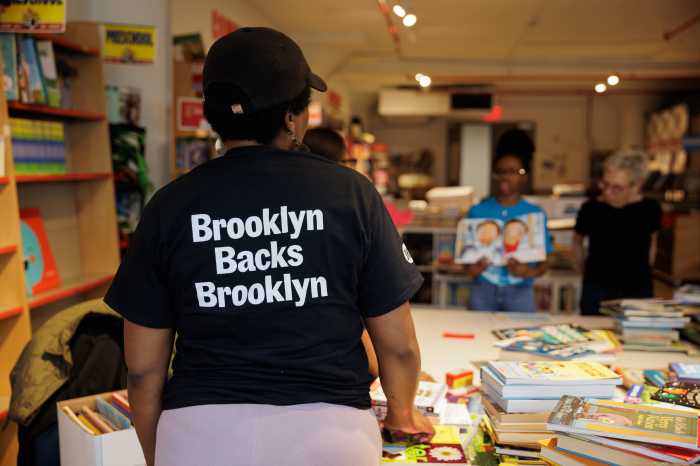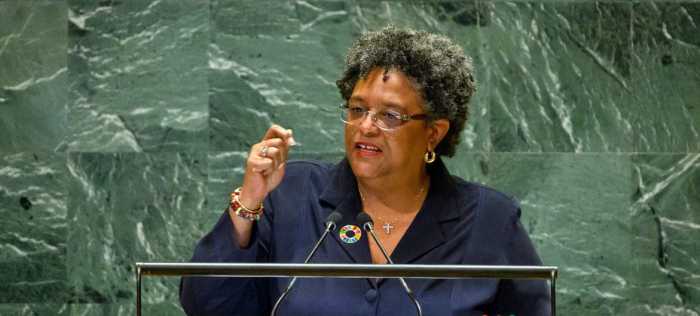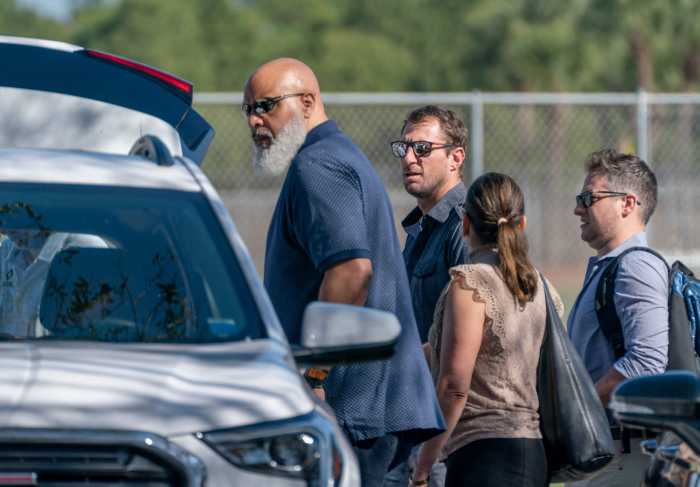Blood ties and faith binds in two laudable shows
With “Indian Blood,” A.R. Gurney is on familiar territory, mining the world of the preppy and privileged to create idiosyncratic yet comfortably familiar characters. In one of his most obviously autobiographical plays to date, he takes on the “memory play” genre to tell the story of a prosperous Buffalo family in 1946. Eddie, the son and Gurney’s stand-in, justifies antagonizing his loathsome cousin Lambert, because Eddie has Indian blood in his veins—part of the family history promulgated by his grandfather. On the surface, it’s the story of one autumn when Eddie is suspended from school because of an obscene drawing—and because Lambert ratted him out. This becomes the event around which Gurney explores the dynamics of the family in a time of change.
The play is drawn in rich tones heavily laced with nostalgia, and is consistently sweet and engaging. It’s virtually impossible not to be drawn into the warmth of this family circle, and to wonder if times were better when someone could argue that the Seneca blood in Eddie’s veins made him inherently superior to Lambert without the claim taking on a racist hue.
It would be easy to be cut off a big piece of American pie and bask in the rosy regions of romanticized memory were Gurney not such a clever playwright. He deftly suckers us into the type of nostalgia made popular by those who promote traditional values to make a point about narrow-mindedness and the risks of resistance to change. Eddie’s grandfather, who was the one to amass the family fortune and who provides jobs for his sons, is the only one who sees the transition that is about to hit post-war Buffalo. The city is about to be bypassed, and those who will not change with it are going to be left behind. Eddie’s father and confirmed bachelor Uncle Paul (played as a gratuitous extended gay joke by Matthew Arkin) are too arrogant, self-involved and entrenched in preserving the life they didn’t earn to see the dangers ahead. Fifty years later, the real-life parallels are tragically obvious and shocking. Gurney shows us that while memory lane may be a boulevard of roses, there are nonetheless thorns if one is willing to look.
The splendid company is led by Charles Socarides as Eddie. He is exuberant, buoyant, and charming in that optimistic way so beloved by Horatio Alger and his ilk. Jeremy Blackman is perfectly smarmy as Lambert. Jack Gilpin plays Eddie’s father flawlessly as the kind of stiff prig who puts excessive value on form because substance is lacking.
The two highlights of the evening are Rebecca Luker as Eddie’s mother and John McMartin as Eddie’s grandfather. Luker turns in a delicate performance of a woman trapped in a role and wondering whether or not she has the nerve to break free from the social strictures. She also gets to sing, which alone is worth the ticket price. McMartin turns in a wonderful performance as a man who has made his fortune by correctly reading the world and who still has every bit of the spirit that got him there. The part borders on stereotypical, but McMartin gives it an engaging, easy style that is irresistible and makes it seem fresh.
Ultimately, Gurney seems to be saying, beware the warm feelings of memory. They may bring a tear to the eye or recall a bygone time with great fondness, but it can be a trap. As long as the world continues to turn and we remain part of it, romance and nostalgia are luxuries we cannot afford.
When one sets out to create a clown show in the narrative mode, one is asking for comparisons with Bill Irwin, the modern master of that medium. Fortunately, Lucas Caleb Rooney and Orlando Pabotoy are worthy bearers of this tradition. Their new project, “Creation: A Clown Show,” performed by Rooney under Pabotoy’s direction, is an extraordinary meditation on creation.
In an economical, yet powerful and endearing 60-minute piece, we are asked to consider traditional beliefs, God, faith, and the unknowable reality of how the world came to be. Audiences can feel sympathy for a clutch of marshmallow chicks, consider whether or not God is a creation of man, and contemplate whether or not random happenstance and free will can co-exist with our notions of God as the Creator.
Rooney is an open and present performer, feeding off the energy of the audience while staying within the proscribed narrative. The balance between clowning and theological exploration is absolutely perfect for today’s world, and seems more honest than some of the real-life clowns who are prone to making pronouncements about God. The kind of fearless and playful exploration Pabotoy and Rooney engage in is the hallmark of exceptional clowning, and this tight, intelligent, and absurdly creative piece is not to be missed.
gaycitynews.com



































